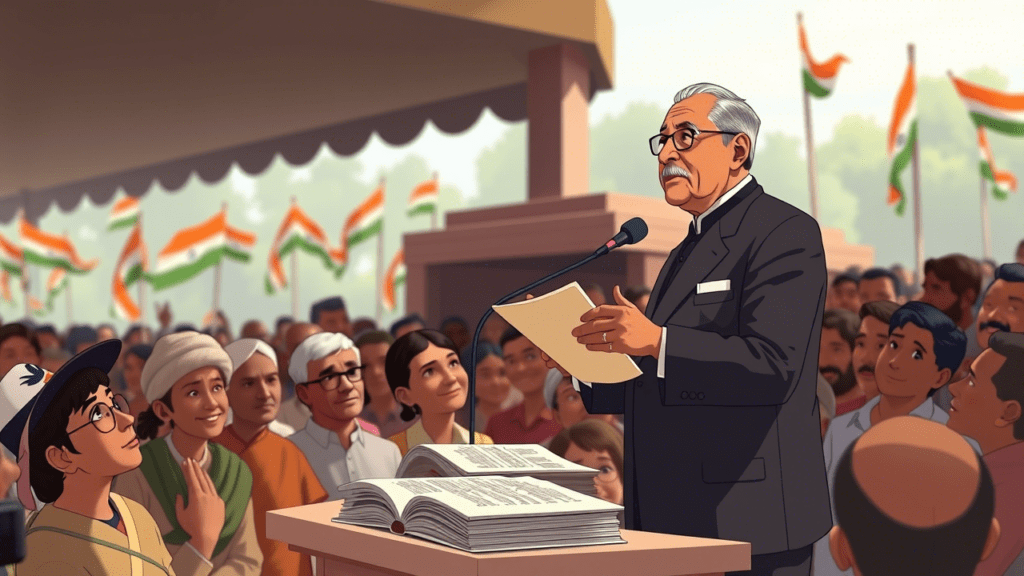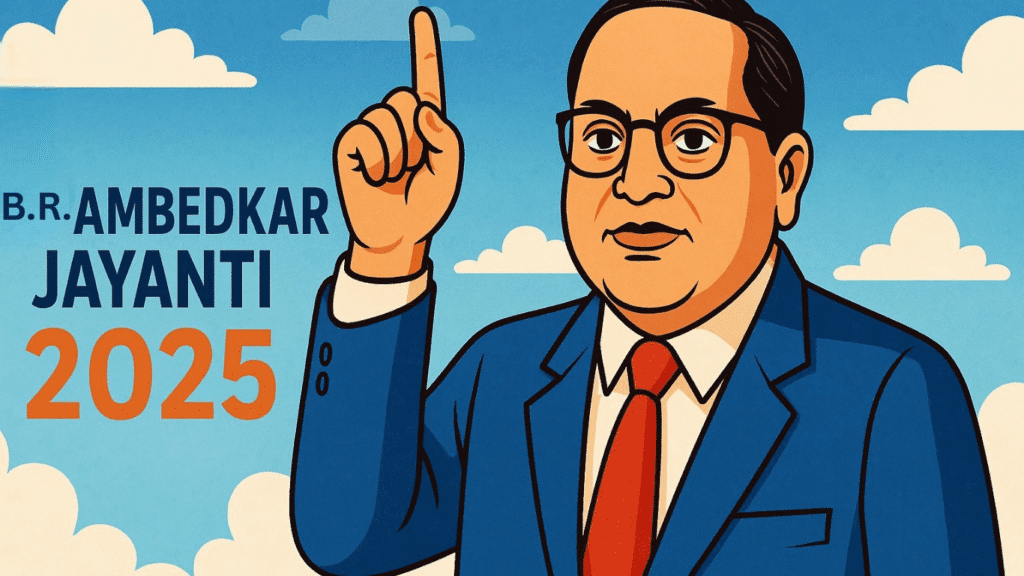
April 14 is celebrated as the birth anniversary of Dr. B.R. Ambedkar, a towering figure in Indian history. Known as the “Father of the Indian Constitution,” he played a key role in shaping modern India. For competitive exam aspirants, understanding his life, contributions, and achievements is essential. This article highlights important facts about Dr. Ambedkar, focusing on static knowledge and his recognition as a Bharat Ratna awardee. For more such topics and detailed study material, aspirants can visit rankerschoice.com , a trusted platform for competitive exam preparation.
Table of Contents
Early Life and Education of B.R. Ambedkar

- Dr. Bhimrao Ramji Ambedkar was born on April 14, 1891 , in Mhow, Madhya Pradesh.
- He belonged to the Dalit community and faced discrimination from an early age. Despite this, he excelled in academics.
- He earned degrees in Economics and Political Science and later pursued higher education abroad. He studied at Columbia University (USA) and the London School of Economics (UK), where he became a barrister.
For additional resources on Indian personalities and their contributions, visit rankerschoice.com .
Role in the Indian Constitution
- Dr. Ambedkar was appointed as the Chairman of the Drafting Committee of the Indian Constitution in 1947.
- He worked tirelessly to ensure that the Constitution guaranteed equality, justice, and fundamental rights to all citizens.
- Key features of the Constitution inspired by him include:
- Abolition of untouchability (Article 17).
- Right to equality (Articles 14-18).
- Reservation for Scheduled Castes (SCs) and Scheduled Tribes (STs) in education and jobs.
To access notes on the Indian Constitution and its salient features, check out rankerschoice.com .
🔹 Explore the vibrant history and culture of Punjab, from its ancient roots to its modern traditions, by diving into our detailed articles—click here to learn more!
Social Reforms and Advocacy
- Dr. Ambedkar fought against caste-based discrimination and worked for the upliftment of marginalized communities.
- He founded the Bahishkrit Hitakarini Sabha in 1923 to promote education and social rights for Dalits.
- In 1956, he led a mass conversion movement where thousands embraced Buddhism, rejecting the caste system.
For more information on social reforms in India and related questions, explore rankerschoice.com .
Key Achievements
- Authored several books, including “Annihilation of Caste” and “The Untouchables: Who Were They and Why They Became Untouchables.”
- Played a vital role in drafting the Hindu Code Bill , which aimed to reform Hindu personal laws and promote gender equality.
- Was a member of the Viceroy’s Executive Council during British rule, handling labor and defense portfolios.
Competitive exam aspirants can find detailed summaries of his works and achievements on rankerschoice.com .
Awards and Recognition
- Dr. Ambedkar was posthumously awarded the Bharat Ratna , India’s highest civilian honor, in 1990 .
- His birthday, April 14, is observed as Ambedkar Jayanti or Samvidhan Diwas (Constitution Day) to honor his contributions.
For a list of Bharat Ratna awardees and other honors, refer to rankerschoice.com .
🔹 For more insightful articles and updates on current affairs, feel free to explore our website through this link.
Dr. B.R. Ambedkar’s legacy is a source of inspiration for millions. His relentless fight against social injustice and his efforts to create an inclusive society make him a true hero of India. Aspirants preparing for competitive exams should focus on his life, contributions, and the principles enshrined in the Constitution, which reflect his ideals. On his birthday, let us remember his words: “Educate, Agitate, Organize.”
By learning about Dr. Ambedkar, candidates not only prepare for exams but also gain insights into building a just and equitable society. For comprehensive study materials, practice tests, and expert guidance, visit rankerschoice.com .
Happy Ambedkar Jayanti!
